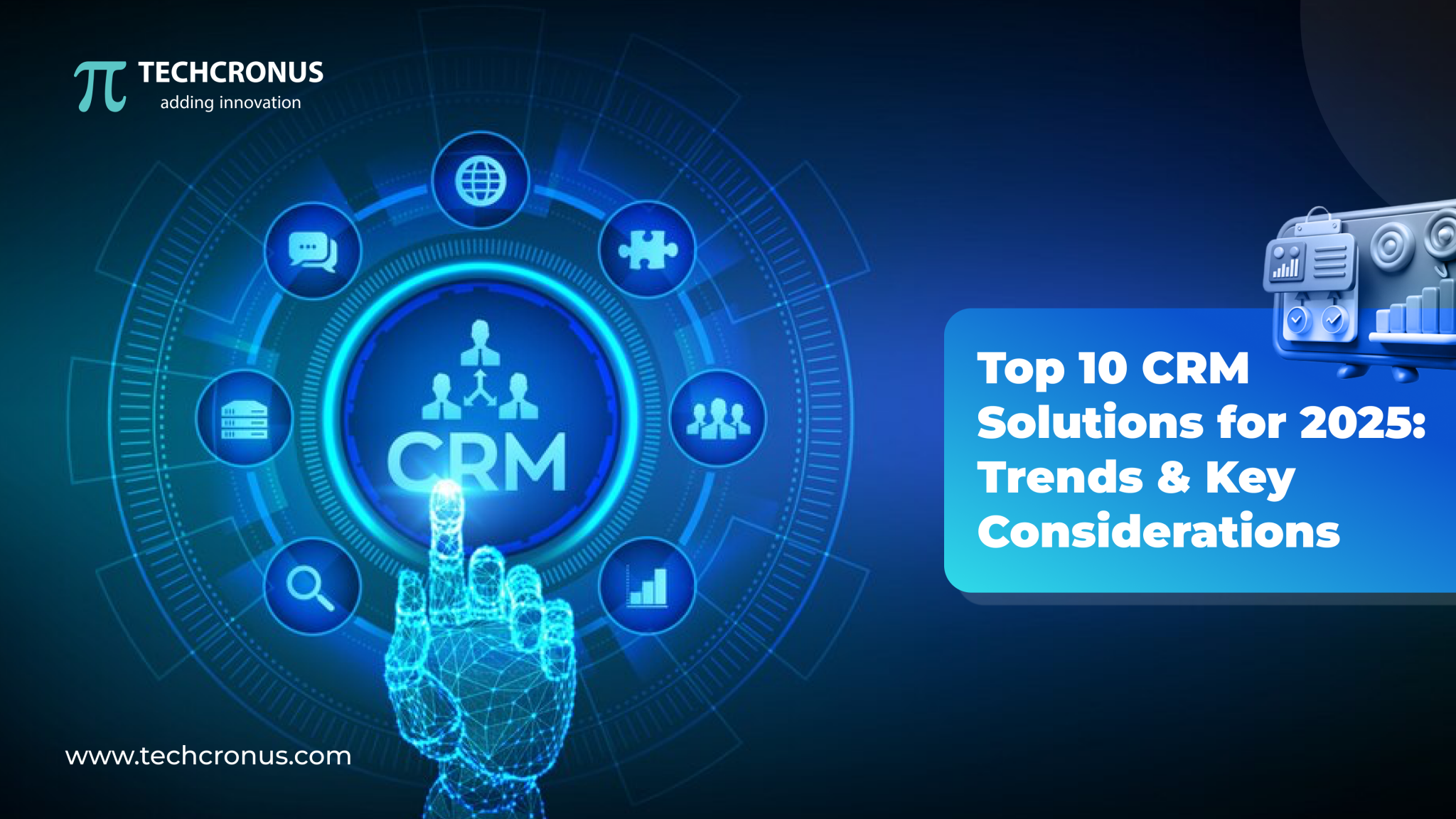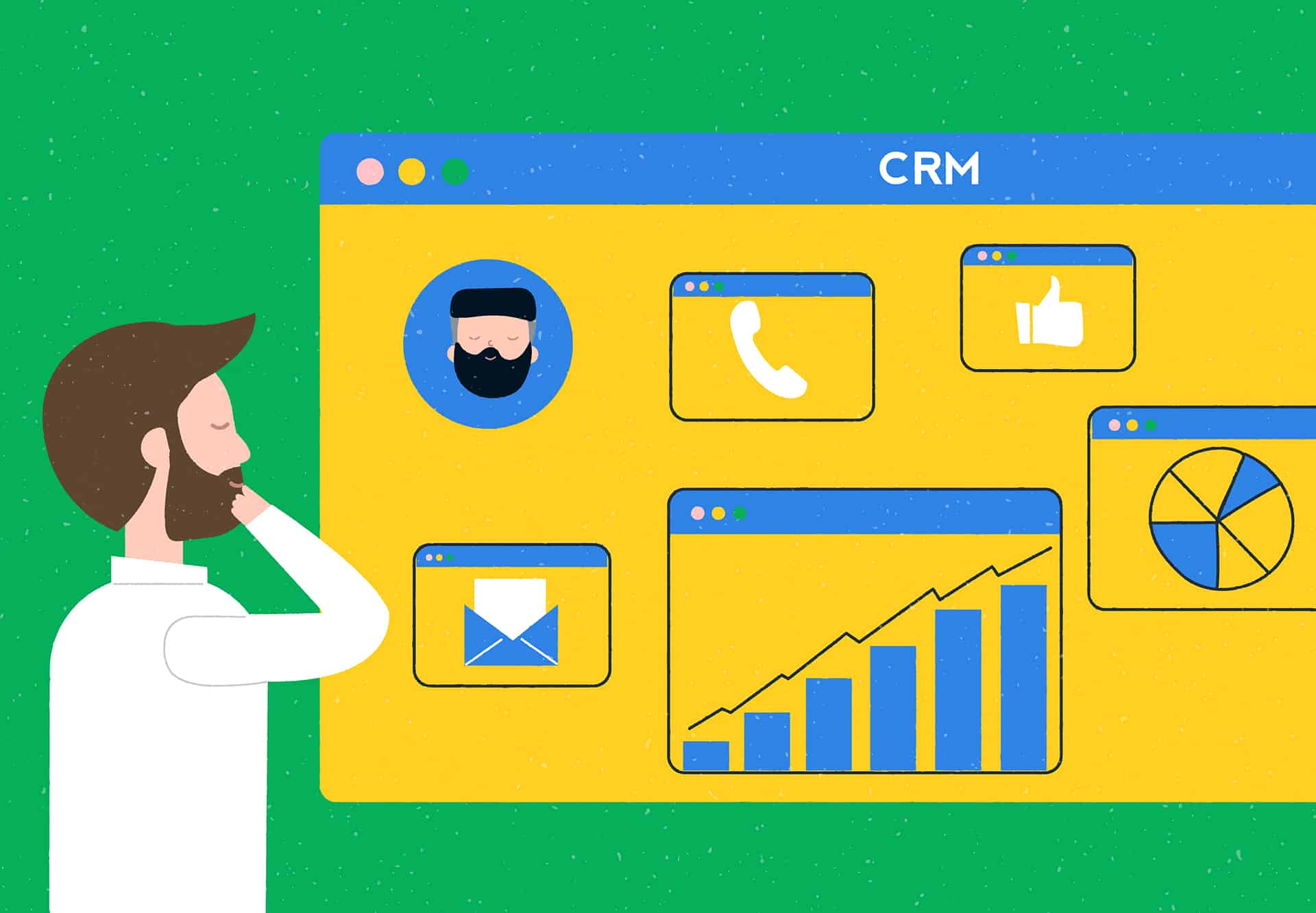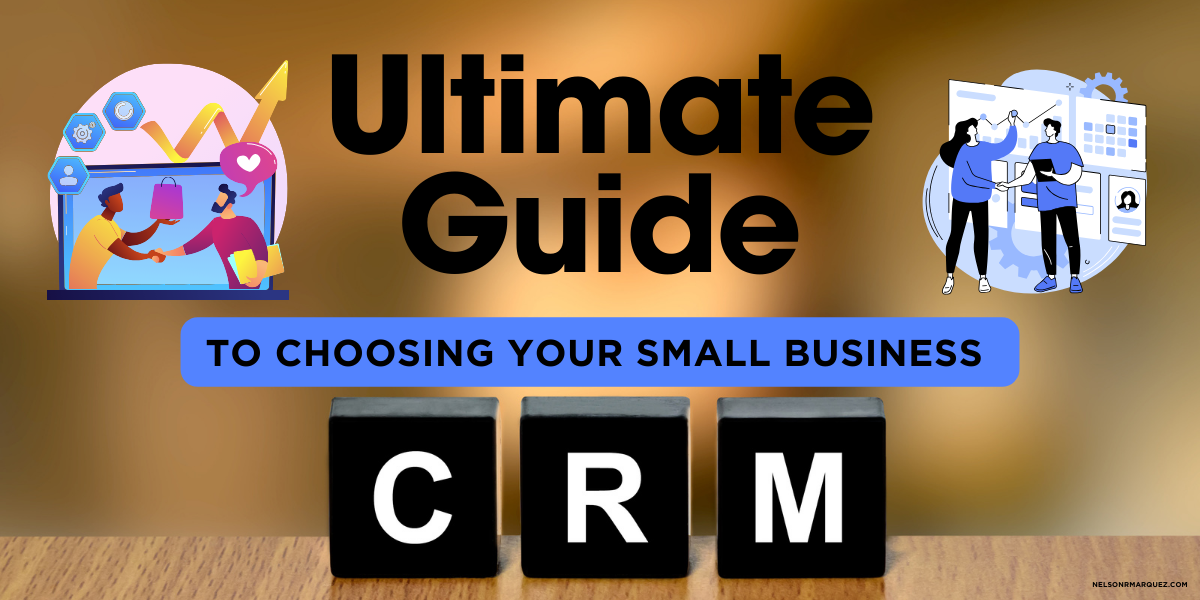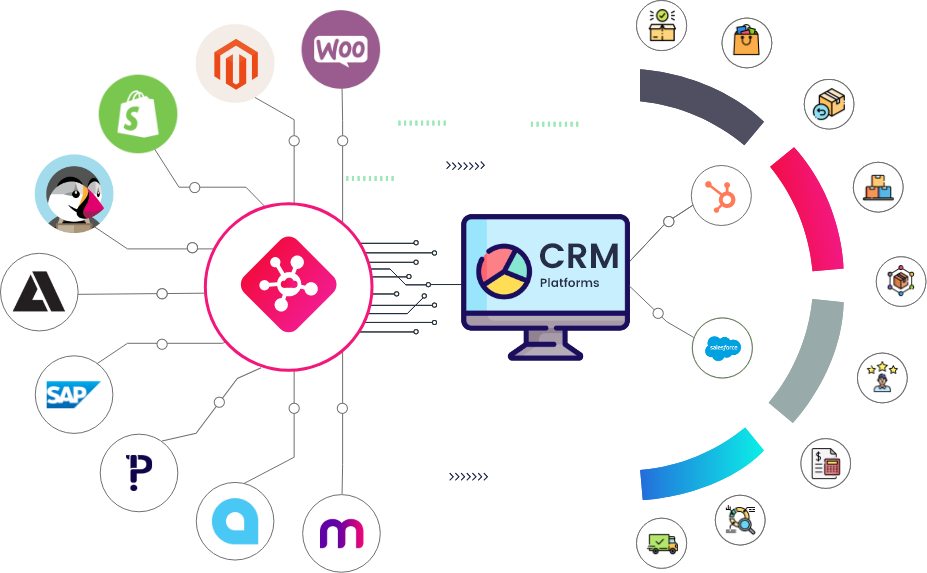Unlock Growth: The Ultimate Guide to Small Business CRM Solutions

In the bustling landscape of entrepreneurship, small businesses often face a myriad of challenges. From attracting new customers to retaining existing ones, managing operations efficiently is crucial for survival and success. One of the most potent tools available to small businesses in this regard is a Customer Relationship Management (CRM) solution. This comprehensive guide will delve into the world of small business CRM solutions, exploring their benefits, features, and how to choose the right one for your unique needs. Get ready to unlock the power of CRM and transform your business!
What is a CRM and Why Does Your Small Business Need One?
At its core, a CRM is a system that helps businesses manage interactions with current and potential customers. It’s more than just a contact list; it’s a centralized hub for all customer-related data, enabling businesses to understand their customers better, personalize interactions, and ultimately, drive sales and improve customer loyalty. Think of it as the digital brain of your customer relationships.
For small businesses, CRM solutions offer a significant advantage. They provide a level playing field, enabling them to compete with larger companies that often have more resources. A CRM can help small businesses:
- Improve Customer Relationships: By providing a 360-degree view of each customer, CRM allows you to personalize interactions and build stronger relationships.
- Increase Sales: CRM helps you identify and nurture leads, track sales opportunities, and close deals more effectively.
- Enhance Customer Service: With readily available customer information, your team can provide faster and more efficient support.
- Streamline Operations: CRM automates many tasks, freeing up your team to focus on more strategic initiatives.
- Gain Valuable Insights: CRM provides data-driven insights into customer behavior and sales performance, helping you make informed decisions.
In essence, a CRM is an investment in your business’s future. It’s about working smarter, not harder, and building a sustainable business model centered around customer satisfaction and growth.
Key Features to Look for in a Small Business CRM
The market is flooded with CRM solutions, each boasting a unique set of features. However, some features are essential for small businesses. Here’s what to look for:
Contact Management
This is the foundation of any CRM. It allows you to store and organize customer information, including contact details, communication history, and purchase records. Look for features like:
- Contact Segmentation: Grouping contacts based on demographics, behavior, or other criteria.
- Lead Scoring: Identifying and prioritizing leads based on their potential to convert.
- Custom Fields: Allowing you to store unique information relevant to your business.
Sales Automation
Sales automation features streamline the sales process, saving time and increasing efficiency. Key features include:
- Lead Management: Tracking leads from initial contact to conversion.
- Sales Pipeline Management: Visualizing the sales process and tracking deals through different stages.
- Automated Email Sequences: Sending pre-written emails to nurture leads or follow up with customers.
- Task Automation: Automating repetitive tasks like data entry and appointment scheduling.
Marketing Automation
Marketing automation tools help you engage with customers and prospects through targeted campaigns. Look for features like:
- Email Marketing: Sending newsletters, promotional emails, and other communications.
- Marketing Segmentation: Targeting specific customer groups with relevant content.
- Campaign Management: Tracking the performance of marketing campaigns.
- Social Media Integration: Connecting your CRM to social media platforms for lead generation and customer engagement.
Customer Service and Support
A good CRM should help you provide excellent customer service. Look for features like:
- Help Desk Integration: Integrating with help desk software to manage customer support tickets.
- Live Chat: Providing real-time support through live chat functionality.
- Knowledge Base: Offering a self-service knowledge base for customers to find answers to their questions.
Reporting and Analytics
Data is the lifeblood of any business. CRM reporting and analytics features provide insights into your sales, marketing, and customer service performance. Look for features like:
- Sales Reports: Tracking sales performance, revenue, and other key metrics.
- Marketing Reports: Analyzing the performance of marketing campaigns.
- Customer Service Reports: Monitoring customer satisfaction and support ticket resolution times.
- Customizable Dashboards: Creating personalized dashboards to track the metrics that matter most to your business.
Integration Capabilities
The ability to integrate with other business tools is crucial. Look for integrations with:
- Email Marketing Platforms: (e.g., Mailchimp, Constant Contact)
- Accounting Software: (e.g., QuickBooks, Xero)
- E-commerce Platforms: (e.g., Shopify, WooCommerce)
- Social Media Platforms: (e.g., Facebook, Twitter)
- Other Business Applications: (e.g., project management software, calendar apps)
Top Small Business CRM Solutions: A Comparative Overview
Choosing the right CRM can be overwhelming. Here’s a look at some of the leading solutions for small businesses, along with their key strengths:
1. HubSpot CRM
Best for: Businesses looking for a free, comprehensive CRM with excellent marketing automation capabilities.
Key Features:
- Free CRM with robust features.
- Powerful marketing automation tools.
- Contact management, sales pipeline management, and reporting.
- Seamless integration with HubSpot’s marketing, sales, and service hubs.
- User-friendly interface and excellent customer support.
Pros: Free plan is incredibly generous; easy to use; extensive integrations; strong marketing automation.
Cons: Advanced features require paid upgrades; some limitations on the free plan.
2. Zoho CRM
Best for: Small businesses seeking a highly customizable and affordable CRM with a wide range of features.
Key Features:
- Highly customizable and scalable.
- Comprehensive sales, marketing, and customer service features.
- Workflow automation and process management.
- Extensive integrations with third-party apps.
- Affordable pricing plans.
Pros: Highly customizable; feature-rich; affordable; strong integration capabilities.
Cons: Can be complex to set up and configure; interface can feel overwhelming at times.
3. Salesforce Sales Cloud
Best for: Growing businesses that need a robust and scalable CRM with advanced features.
Key Features:
- Industry-leading CRM with a wide range of features.
- Advanced sales automation, lead management, and reporting.
- Customization options to meet specific business needs.
- Extensive AppExchange marketplace for integrations.
- Scalable to accommodate business growth.
Pros: Powerful and feature-rich; highly scalable; extensive customization options; strong integration capabilities.
Cons: Can be expensive, especially for small businesses; complex to implement and manage; steep learning curve.
4. Pipedrive
Best for: Sales-focused businesses that want a visual and intuitive CRM to manage their sales pipeline.
Key Features:
- Visual sales pipeline management.
- Contact and deal management.
- Sales automation and reporting.
- Email integration and tracking.
- User-friendly interface.
Pros: Intuitive and easy to use; excellent sales pipeline management; focus on sales productivity.
Cons: Limited marketing automation features; can be expensive for larger teams.
5. Freshsales
Best for: Small businesses looking for a modern and user-friendly CRM with built-in phone and email capabilities.
Key Features:
- Built-in phone and email.
- Contact and deal management.
- Sales automation and reporting.
- AI-powered features like lead scoring and deal insights.
- User-friendly interface.
Pros: User-friendly; built-in phone and email; affordable pricing; AI-powered features.
Cons: Fewer integrations compared to some other CRM solutions; limited customization options.
How to Choose the Right CRM for Your Small Business
Selecting the right CRM is a critical decision. Here’s a step-by-step guide to help you make the right choice:
1. Define Your Needs and Goals
Before you start evaluating CRM solutions, take the time to understand your business needs and goals. Ask yourself questions like:
- What are your current pain points in managing customer relationships?
- What are your sales and marketing goals?
- What features are essential for your business?
- What is your budget?
- How many users will need access to the CRM?
Answering these questions will help you narrow down your options and prioritize the features that are most important to you.
2. Assess Your Budget
CRM solutions come in various pricing tiers, from free to enterprise-level. Determine how much you’re willing to spend on a CRM. Consider not only the monthly or annual subscription fees but also any implementation costs, training costs, and potential costs for add-ons or integrations. Remember that the cheapest option isn’t always the best. Consider the long-term value and return on investment (ROI) of the CRM.
3. Research and Compare CRM Solutions
Once you have a clear understanding of your needs and budget, start researching different CRM solutions. Read reviews, compare features, and consider the pros and cons of each option. Look for solutions that offer a free trial or demo so you can test them out before committing. Pay attention to the following factors:
- Features: Does the CRM offer the features you need?
- Ease of Use: Is the interface intuitive and easy to navigate?
- Integrations: Does the CRM integrate with your existing business tools?
- Customer Support: Does the vendor offer good customer support?
- Pricing: Is the pricing affordable and transparent?
4. Get a Demo or Free Trial
Before making a final decision, take advantage of free trials or demos offered by CRM vendors. This will allow you to test the software and see if it meets your needs. During the trial, try out the key features, explore the interface, and see how the CRM integrates with your existing tools. Consider asking the vendor to provide a personalized demo based on your specific business needs.
5. Consider Scalability
Choose a CRM that can grow with your business. As your business expands, you’ll need a CRM that can handle more data, more users, and more complex workflows. Ensure that the CRM you choose offers the scalability you need to support your future growth.
6. Evaluate the Implementation Process
The implementation process can be complex, so make sure you understand what’s involved. Some CRM solutions are easy to set up and configure, while others require more technical expertise. Consider the level of support and training offered by the vendor. If you’re not technically inclined, look for a CRM that offers onboarding assistance or implementation services.
7. Prioritize Data Security and Privacy
Your CRM will store sensitive customer data, so data security and privacy are paramount. Choose a CRM that has robust security features, such as data encryption, user access controls, and regular backups. Make sure the vendor complies with relevant data privacy regulations, such as GDPR and CCPA. Review the vendor’s privacy policy to understand how they handle your data.
8. Training and Onboarding
Once you’ve chosen a CRM, it’s essential to train your team on how to use it effectively. Make sure the vendor offers training resources, such as tutorials, documentation, and online support. Consider assigning a CRM administrator to oversee the implementation and ongoing management of the system. Properly training your team will ensure that they can leverage the full potential of the CRM.
9. Regularly Review and Optimize
Implementing a CRM is not a one-time event. Regularly review your CRM usage and performance. Identify areas for improvement and make adjustments as needed. This may involve adding new features, customizing workflows, or training your team on new functionalities. Continuously optimizing your CRM will help you get the most out of your investment.
The Benefits of CRM for Small Businesses: A Deeper Dive
Beyond the core features, CRM solutions offer a wealth of benefits for small businesses, impacting various aspects of their operations. Let’s explore some of these in more detail:
Enhanced Sales Performance
CRM systems are designed to supercharge your sales efforts. They provide a centralized view of your sales pipeline, enabling you to track leads, manage deals, and monitor sales performance in real-time. This visibility allows you to identify bottlenecks, optimize your sales process, and make data-driven decisions to improve closing rates.
CRM empowers your sales team with the information they need to nurture leads effectively. By providing access to customer history, communication logs, and purchase data, sales reps can personalize their interactions, tailor their pitches, and build stronger relationships with prospects. This leads to increased conversion rates and higher revenue.
Furthermore, CRM automates many of the tedious tasks that consume a salesperson’s time. Automated email sequences, task reminders, and lead scoring free up sales reps to focus on what they do best: selling. This increased efficiency translates into more time spent on high-value activities, such as building relationships, closing deals, and driving revenue.
Improved Marketing Effectiveness
CRM solutions are powerful tools for marketing professionals. They enable you to segment your customer base, create targeted marketing campaigns, and track the performance of your marketing efforts. By understanding your customers’ preferences, behaviors, and demographics, you can tailor your messaging to resonate with each segment, increasing engagement and driving conversions.
CRM integrates seamlessly with email marketing platforms, social media channels, and other marketing tools. This integration allows you to automate marketing tasks, such as sending newsletters, running promotional campaigns, and tracking social media engagement. Automated marketing campaigns save time and resources, while ensuring that your message reaches the right audience at the right time.
CRM provides valuable insights into the performance of your marketing campaigns. By tracking key metrics, such as click-through rates, conversion rates, and return on investment (ROI), you can identify which campaigns are most effective and optimize your marketing strategy for maximum impact. This data-driven approach allows you to make informed decisions and allocate your marketing budget wisely.
Superior Customer Service
Exceptional customer service is essential for building customer loyalty and fostering long-term relationships. CRM solutions empower your customer service team to provide prompt, efficient, and personalized support. By providing access to customer history, support tickets, and communication logs, customer service representatives can quickly understand customer issues and resolve them effectively.
CRM integrates with help desk software, live chat platforms, and other customer service tools. This integration streamlines the customer service process, enabling your team to manage support tickets, respond to customer inquiries, and provide real-time assistance. Integrated systems ensure that customer interactions are seamless and consistent across all channels.
CRM enables you to track customer satisfaction levels and identify areas for improvement. By monitoring customer feedback, support ticket resolution times, and other key metrics, you can identify and address customer service issues proactively. This data-driven approach allows you to improve customer satisfaction, reduce churn, and build a loyal customer base.
Increased Operational Efficiency
CRM solutions automate many of the manual and repetitive tasks that consume your team’s time. This frees up your employees to focus on more strategic initiatives, such as building relationships, closing deals, and improving customer service. Automation streamlines your operations, reduces errors, and improves overall productivity.
CRM provides a centralized hub for all customer-related data, eliminating the need for multiple spreadsheets and databases. This centralization simplifies data management, reduces the risk of data silos, and ensures that everyone has access to the information they need. A unified data system improves collaboration and decision-making across your organization.
CRM integrates with other business tools, such as accounting software, e-commerce platforms, and project management software. This integration eliminates the need for manual data entry and reduces the risk of errors. Integrated systems streamline your operations, automate workflows, and improve overall efficiency.
Data-Driven Decision Making
CRM solutions provide valuable insights into your sales, marketing, and customer service performance. By analyzing data from various sources, you can gain a deeper understanding of your customers, your sales process, and your marketing effectiveness. This data-driven approach allows you to make informed decisions and optimize your business for maximum impact.
CRM reporting and analytics features provide real-time insights into key metrics, such as sales performance, customer satisfaction, and marketing campaign effectiveness. These insights allow you to track your progress, identify areas for improvement, and make data-driven decisions. Real-time data empowers you to react quickly to changing market conditions and make informed decisions.
CRM provides a 360-degree view of your customers, allowing you to understand their preferences, behaviors, and demographics. This information allows you to personalize your interactions, tailor your marketing messages, and build stronger relationships with your customers. A deeper understanding of your customers helps you create products and services that meet their needs and exceed their expectations.
Common Challenges and How to Overcome Them
While CRM solutions offer numerous benefits, small businesses may encounter challenges during implementation and use. Here’s how to overcome these common hurdles:
Resistance to Change
Introducing a new system can be met with resistance from employees. It’s important to address this proactively by:
- Communicating the benefits: Clearly explain how the CRM will improve their work lives and contribute to the company’s success.
- Providing thorough training: Equip employees with the knowledge and skills they need to use the CRM effectively.
- Involving employees in the process: Seek input from your team during the selection and implementation process to foster a sense of ownership.
- Leading by example: Demonstrate the value of the CRM by using it yourself and encouraging its use throughout the organization.
Data Migration and Integration
Transferring data from existing systems and integrating the CRM with other tools can be complex. To address this:
- Plan carefully: Develop a detailed data migration plan, including data cleaning and mapping.
- Choose a CRM with strong integration capabilities: Ensure that the CRM integrates seamlessly with your existing tools.
- Seek professional help: Consider hiring a consultant to assist with data migration and integration if needed.
- Test thoroughly: Validate the data after migration to ensure accuracy and completeness.
Poor Data Quality
The value of a CRM depends on the quality of the data. To ensure data quality:
- Establish data entry standards: Define clear guidelines for data entry and ensure that all employees follow them.
- Implement data validation rules: Use data validation rules to prevent errors during data entry.
- Regularly clean and update your data: Dedicate time to regularly clean and update your data to maintain its accuracy.
- Train employees on data entry best practices: Educate your team on the importance of data quality and how to maintain it.
Lack of User Adoption
If employees don’t use the CRM, it won’t deliver its full potential. To improve user adoption:
- Provide ongoing training and support: Offer regular training sessions and provide ongoing support to help employees use the CRM effectively.
- Make the CRM user-friendly: Choose a CRM with an intuitive interface and easy-to-use features.
- Highlight the benefits: Regularly remind employees of the benefits of using the CRM.
- Monitor usage and provide feedback: Track user activity and provide feedback to encourage adoption.
Cost Considerations
Implementing a CRM involves costs beyond the subscription fee. To manage costs effectively:
- Develop a realistic budget: Consider all costs, including implementation, training, and ongoing maintenance.
- Choose a CRM that fits your budget: Select a CRM that offers the features you need at a price you can afford.
- Negotiate pricing: Negotiate with vendors to secure the best possible pricing.
- Track your ROI: Regularly monitor the return on investment to ensure that the CRM is delivering value.
The Future of CRM for Small Businesses
The CRM landscape is constantly evolving, with new technologies and features emerging all the time. Here’s a glimpse into the future of CRM for small businesses:
Artificial Intelligence (AI) and Machine Learning (ML)
AI and ML are transforming the way businesses interact with customers. CRM solutions are increasingly incorporating AI-powered features, such as:
- Predictive analytics: AI can analyze customer data to predict future behavior, such as churn risk and purchase likelihood.
- Chatbots: AI-powered chatbots can provide instant customer support and automate routine tasks.
- Personalized recommendations: AI can recommend products and services based on customer preferences and past behavior.
- Automated insights: AI can identify patterns and trends in customer data, providing valuable insights into customer behavior and sales performance.
Increased Personalization
Customers expect personalized experiences, and CRM solutions are helping businesses deliver them. In the future, CRM will enable businesses to:
- Personalize marketing campaigns: Tailor marketing messages to individual customer preferences and needs.
- Provide personalized customer service: Offer customized support based on customer history and preferences.
- Create personalized product recommendations: Recommend products and services that are relevant to each customer.
- Offer personalized pricing and promotions: Provide customized pricing and promotions based on customer behavior and purchase history.
Mobile CRM
Mobile CRM solutions are becoming increasingly important as businesses become more mobile. In the future, mobile CRM will offer:
- Seamless access to customer data: Access customer information from anywhere, anytime.
- Mobile sales automation: Manage leads, deals, and sales activities on the go.
- Real-time collaboration: Collaborate with team members on the go.
- Push notifications: Receive real-time alerts and notifications about important customer activities.
Integration with Emerging Technologies
CRM solutions will continue to integrate with emerging technologies, such as:
- Voice assistants: Interact with your CRM using voice commands.
- Internet of Things (IoT): Collect data from connected devices to gain insights into customer behavior.
- Virtual Reality (VR) and Augmented Reality (AR): Create immersive customer experiences.
- Blockchain: Securely store and manage customer data.
Conclusion: Embracing CRM for Sustainable Growth
In today’s competitive business environment, small businesses need every advantage they can get. CRM solutions offer a powerful way to manage customer relationships, improve sales performance, and enhance customer service. By choosing the right CRM and implementing it effectively, small businesses can unlock their growth potential and build a sustainable future.
This guide has provided a comprehensive overview of small business CRM solutions, exploring their benefits, features, and how to choose the right one for your unique needs. Remember to define your needs, assess your budget, research and compare solutions, and take advantage of free trials or demos. Don’t be afraid to embrace new technologies and adapt your CRM strategy as your business grows.
The journey towards a customer-centric business is ongoing, but with the right CRM, small businesses can navigate the challenges and thrive in the ever-evolving marketplace. Invest in a CRM today, and watch your business flourish!




